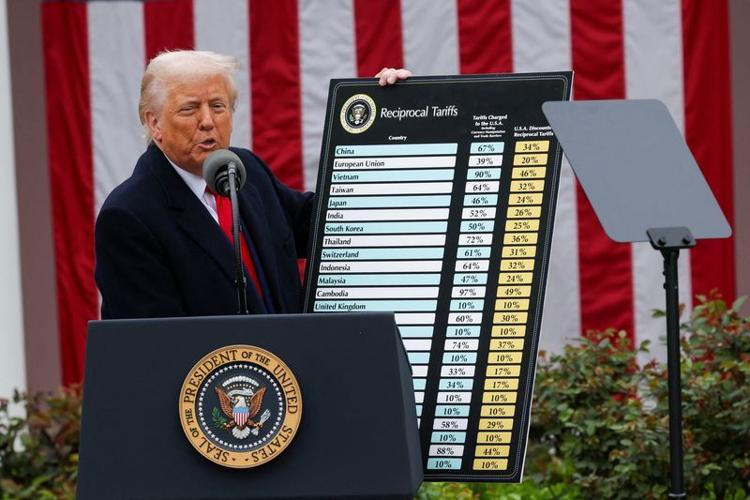Trump said he would impose a 10% baseline tariff on all imports to the United States and higher duties on some of the country’s biggest trading partners.
According to Fitch Ratings, the effective U.S. import tax rate has shot up to 22% under Trump from just 2.5% in 2024, reaching levels last seen around 1910.
As investors digested the news on Thursday, stock markets in Beijing and Tokyo sank to multi-month lows. European shares were also down sharply in morning trade, with top goods exporter Germany hit hard.
Wall Street futures sank as investors shed riskier assets in favour of safe-haven bonds and gold.
Now facing 54% tariffs on exports to the U.S., the world’s No. 2 economy China vowed countermeasures, as did the European Union – Washington’s friends and foes united in criticism of measures they fear will deal a devastating blow to global trade.
“The consequences will be dire for millions of people around the globe,” EU chief Ursula von der Leyen said, adding the 27-member bloc was preparing to hit back if talks with Washington failed.
U.S. Treasury Chief Scott Bessent earlier warned any retaliatory moves would only lead to escalation.
Among close U.S. allies, the European Union was targeted with a 20% rate, Japan with 24%, South Korea with 25% and Taiwan with 32%. Even some tiny territories and uninhabited islands in the Antarctic were hit by tariffs, according to a list posted by the White House on X.
“This is not the act of a friend,” said Prime Minister Anthony Albanese of Australia, a nation often described as America’s “deputy sheriff” in Asia. “The (Trump) administration’s tariffs have no basis in logic and they go against the basis of our two nations’ partnership.”
Outside economists have warned that tariffs could slow the global economy, raise the risk of recession, and increase living costs for the average American family by thousands of dollars.
Canada and Mexico, the two largest U.S. trading partners, already face 25% tariffs on many goods and will not face additional levies from Wednesday’s announcement.
“This is how you sabotage the world’s economic engine while claiming to supercharge it,” said Nigel Green, CEO of global financial advisory deVere Group. “The reality is stark: these tariffs will push prices higher on thousands of everyday goods – from phones to food – and that will fuel inflation at a time when it is already uncomfortably persistent.”







